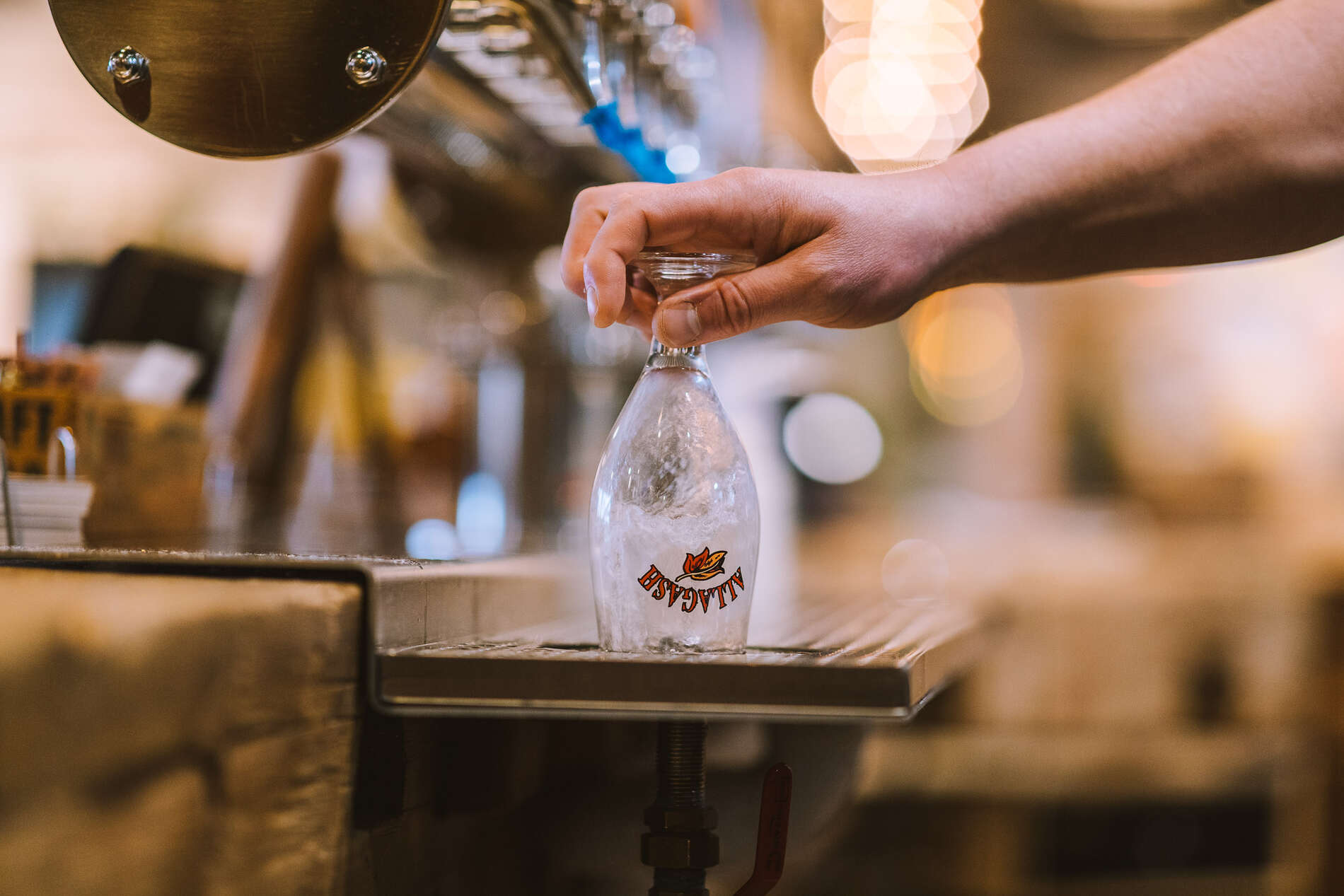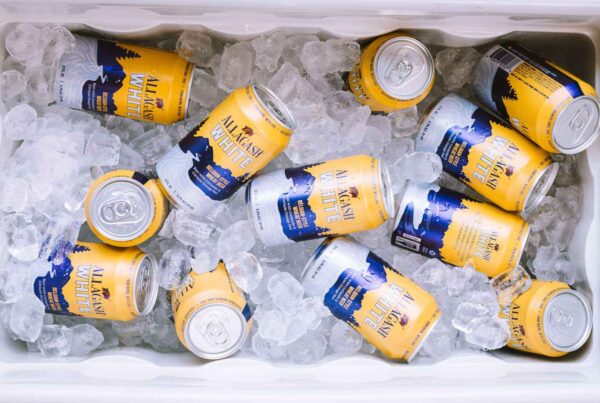Here’s the scenario: you order a beer at your favorite taproom. The next thing you know, your server flips a glass upside down and spritzes it with water before filling it up. But why? What’s the deal with that?
The various reasons for rinsing a glass
First, rinsing the glass removes any unsee-able particles of dust or dirt, resulting in a properly “beer clean” glass. The carbonation in beer will cling to any speck of dirt, potential leftover beer residue, dishwasher cleaning chemicals, etc. If you’ve ever been handed a glass with bubbles clinging to the inside, that’s not optimal.
The big reason why an unclean glass isn’t great is that it reduces the beer’s head retention—those foamy, aroma-filled bubbles that cap a well-poured beer. Without a head, you’ll find a distinct lack of aroma in your beer, which absolutely affects the overall experience.
How can you tell a clean from a less-clean glass?
You might also have seen a string of bubbles rising off of a particular point in a glass: this is called “nucleation.” Most of the time, it’s not intentional and means that a speck of something is left over in the glass. However, some breweries will have a little pattern etched into the bottom of their glass to create this bubbly effect. In that circumstance, bubbles are fine. But in most glasses, you want to see nothing but clear, or hazy, beer. Rinsing the glass helps ensure that any stubborn dust etc., still left after cleaning, gets lifted away.
Chasing that perfect pour
Also, if a glass is fresh out of the dishwasher, rinsing helps cool it down. This results in the best temperature for the beer, as well as a more successful pour. A warm glass will cause more foaming than a cooler glass. And we’re not talking about a nice little head of foam. We’re talking about a beer filling up with 2/3 foam, which is too much even by Belgian standards (FYI Belgians love a good head of foam, which they call “mousse”).
Lastly, rinsing the glass acts as a sort of lubricant. That extremely thin layer of water reduces the friction between beer and glass. Less friction means less foam—and less chance of a foam over—resulting in less spilled beer and a better looking beer for you!






